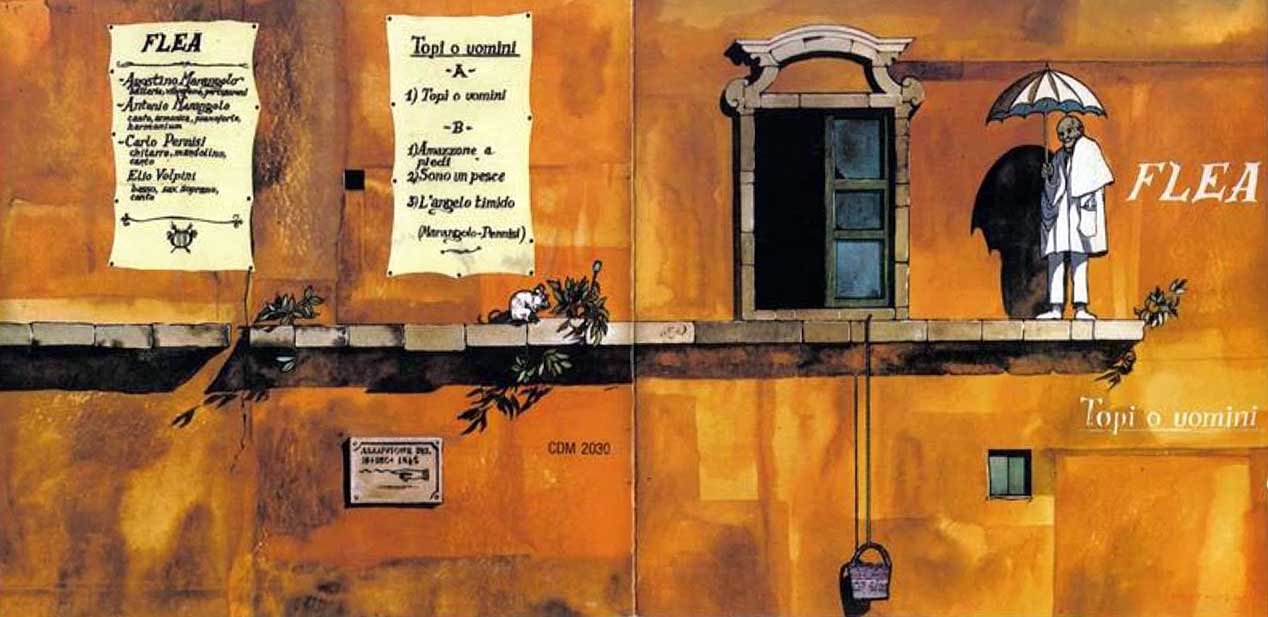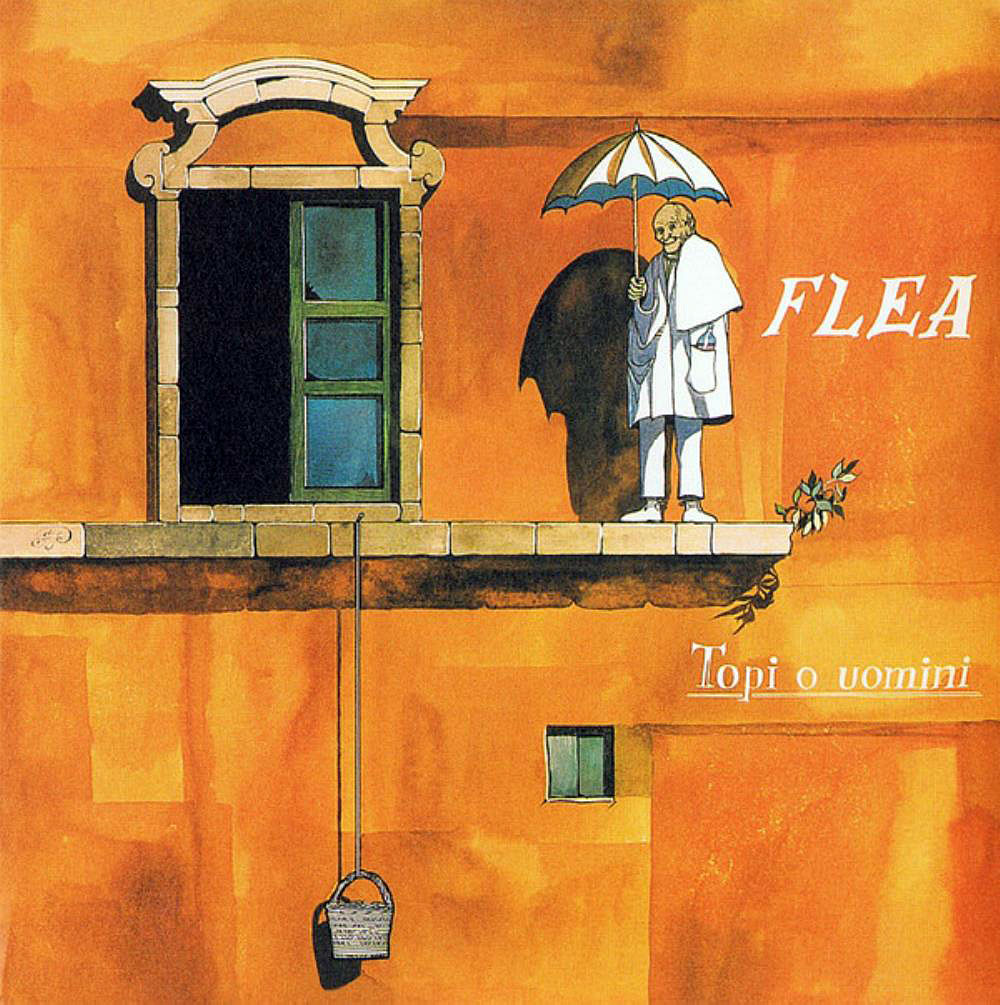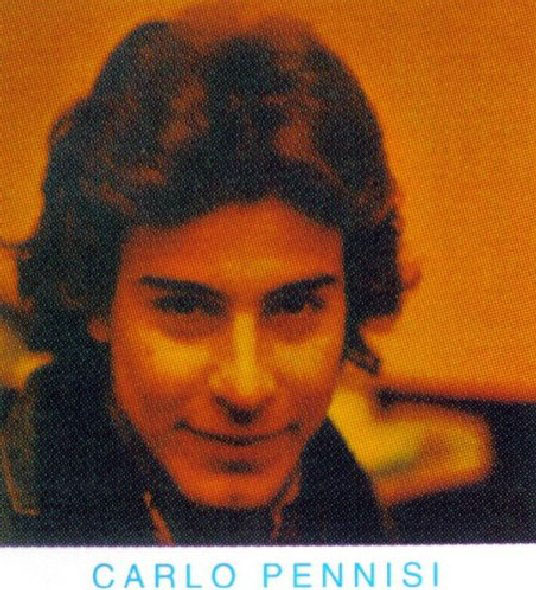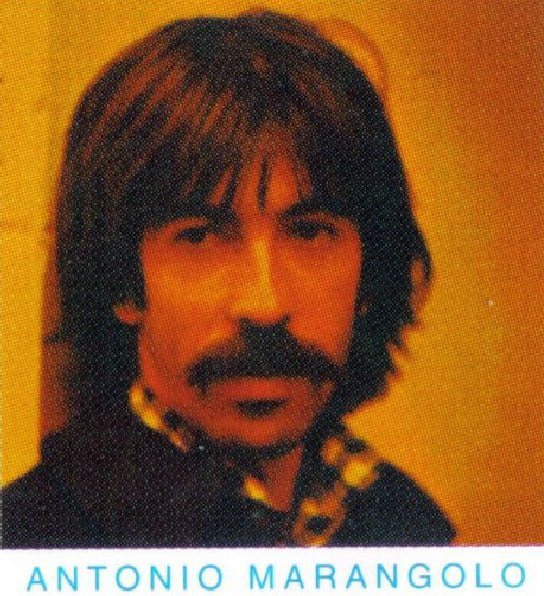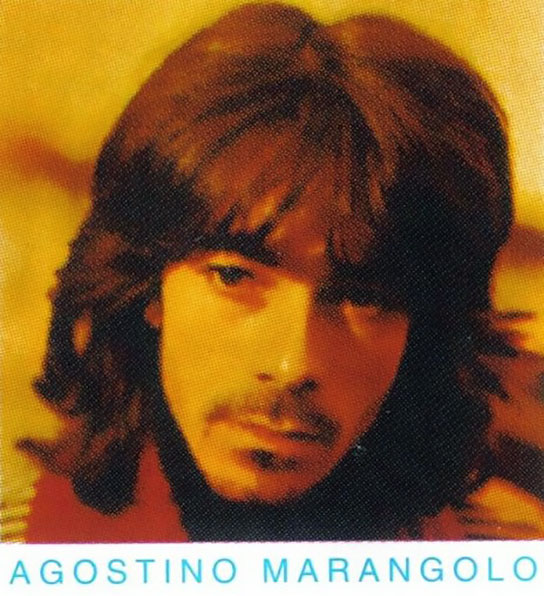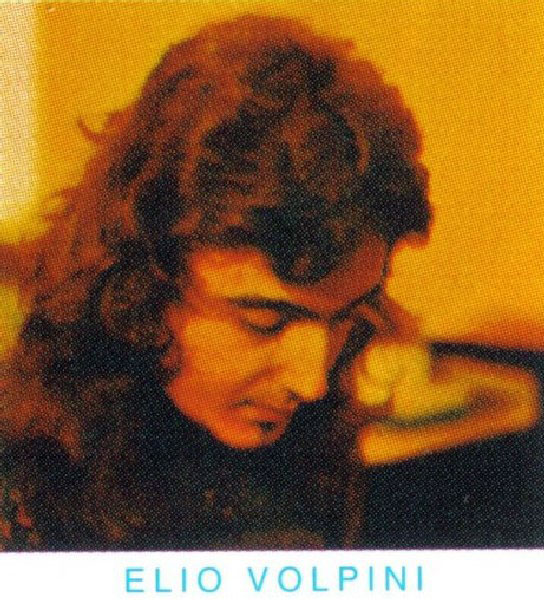”1972 in Italy shows off with one of the most unconventional albums of the progressive musical movement: Topi o Uomini from that outsider band that was Flea (ex “on the Honey”).
Lorenzo
In a previous article, we introduced you to Etna, the splendid final chapter of the Flea on the Honey/Flea/Etna trilogy. Today we talk about their second album, Topi o Uomini.
It was 1972 and the three cousins from Catania, Antonio and Agostino Marangolo and Carlo Pennisi had relocated to Rome and met Elio Volpini who took up the vacant position of bassist, bringing a substantial rock vein to the quartet.
The four abandon the English language and the “honey” of the debut album and remain “Pulci” (Flea in fact) but they are fleas that bite hard: their style is increasingly hard and incisive, psychedelic hard rock constantly tinged with a fusion always in poised between harsh jazz and warm Mediterranean melody.
The album starts with a very Latin-like introduction of Marangolo’s drums which introduces a beautiful and incisive guitar rhythm by Pennisi with open chords which will be the leitmotif of the 20 minutes of the fantastic suite Topi o Uomini.
Drums and guitar rise in an explosive crescendo to which Volpini adds his roaring bass with powerful chords and the voice of Antonio Marangolo narrates a story, both metropolitan and metaphysical at the same time, that tells of frustrated men compared to mice and a cat in the end that happily devours them, perhaps symbolizing the mafia and dark forces.
Impossible not to imagine autobiographical references in the nods to Sicily.
The suite unravels powerfully and breathlessly, psychedelic and hard until it slows down in the central part where the protagonist and narrator of the story accuse himself of being just a mouse, surrendering to an inevitable solitary death of the soul and leaving room for a long solo of Pennisi’s Stratocaster.
Solo that leads us to a bridge that encloses a drum solo by Marangolo that introduces an almost stoner passage that becomes an acid “soul” with harmonica and a new solo by Pennisi and finally the drum “train” leads us to the finale which is a reprise of the initial riff with carioca vocals to then explode again, psychedelic and very hard, in an orgy of drums and guitar phrases woven from the bass until the fade out.
The second side opens with Amazzone a piedi, a metropolitan song that speaks of citizen alienation even in love stories with a very hard and syncopated attack from the jazzy rhythm of the drums on which guitar and bass weave their riff in unison until Pennisi breaks away and follows Elio’s vocal line: a great song of psychedelic prog with Hendrix style reverse guitar plots and a second instrumental and distinctly jazz-fusion part.
This is followed by a suggestive ballad with a Mediterranean jazz flavor, Sono un Pesce, led by Pennis’s acoustic guitar and Antonio Marangolo’ piano, with the lead voice filtered by leslie.
The distinctly jazzy refrain also sees Agostino’s use of the vibraphone.
The central part is a semi-electric, psychedelic raga, with Volpini playing both bass and soprano sax and Antonio Marangolo on piano and harmonium.
A song that could easily have belonged to the Etna album as it effectively anticipates its style: this is being truly “progressive”.
L’angelo timido closes the album introduced by a choir that immediately explodes in a psychedelic electric tune which continues to preserve the vocal interventions only with choruses. Again great rhythms, phrasing and solos by Pennisi, this time also with harmony guitars, to underline the technical expertise of a great instrumentalist: it goes without saying that the album is driven by the guitar, and what a guitar…
Suddenly the song turns into a fast and very acid blues where the harmonica also comes out which, in unison with the guitar, brings to the conclusion a record that could easily be a perfect demo for the two aces of the band, Agostino Marangolo and Carlo Pennisi.
Members of Flea
Carlo Pennisi is at the same time a very melodic and aggressive guitarist.
He creates incisive and imaginative rhythms and phrasing, particularly new for the beginning of the Italian 70s: he is a forerunner gifted with that great technique and musical taste which he will later be able to show off on Etna as in each of his many future collaborations.
In short, a top-class musician and session man, with truly unique control of the instrument and sound.
Agostino Marangolo is a top drummer, his drumming is always effervescent and absolutely explosive: jazz and rock, heavy and articulated at the same time, he introduces that variegated and powerful style which will then give great prestige to the Goblins and to that wonderful final chapter of Flea called Etna. He too will become a much-loved session man.
Antonio Marangolo is a great multi-instrumentalist, a crucial musician with Paolo Conte, Ornella Vanoni, Guccini and Vinicio Capossela, we will often find him next to his brother Agostino in Goblin and in other projects such as jazz self-productions.
Elio Volpini after the Flea parenthesis will be in L’Uovo di Colombo (a project that will then lead to the reform of Flea under the name Etna), Claudio Lolli and others, always as bassist and guitarist. Today he offers Hendrix covers but also Flea/Etna songs in a project led by him.
Topi o Uomini is a clamorous album for the times as for today but it is irreparably affected by the bad Fonit production which is particularly perceptible in the voice which, when it does not even disappear behind the instruments, remains in any case always very harsh and suffocated, forced to scream to be heard and the lyrics, sometimes still almost unintelligible today, are the first to pay the price.
It is an absolute pity since we are in front of a peculiar album in the Italian prog-rock panorama, both for the great beauty and freshness of the instrumental parts and for the sensitivity and depth of the lyrics.
Due to the poor production, this little masterpiece is often unfortunately enjoyed by enthusiasts only, a phenomenon that was all too typical of Italian progressive and experimental projects of the period. While they were lucky enough to be able to make records for free with a State record label, it was mismanaged and many great records of the time suffer from this.
Topi o Uomini by Flea of this neglect behaving is perhaps the spearhead.
Listen to the full album “Topi o Uomini”
A-side
1. Topi o Uomini
Total lenght: 20:20
Side B
1. Amazzone a piedi – 4:10
2. Sono un Pesce – 6:31
3. L’Angelo timido – 5:51
Total lenght: 4.35pm

